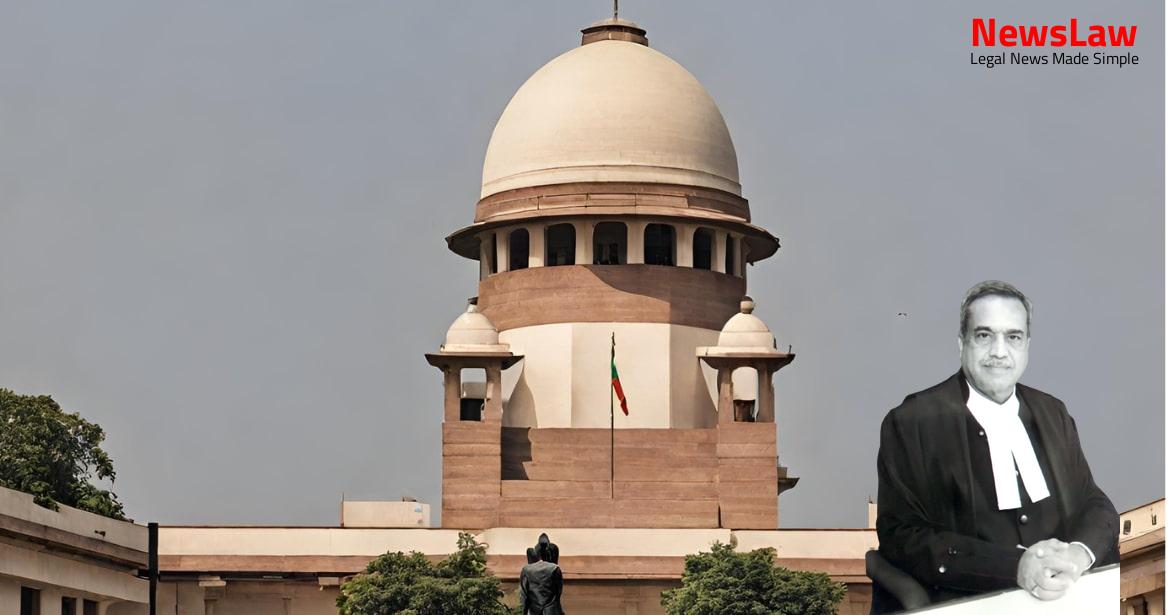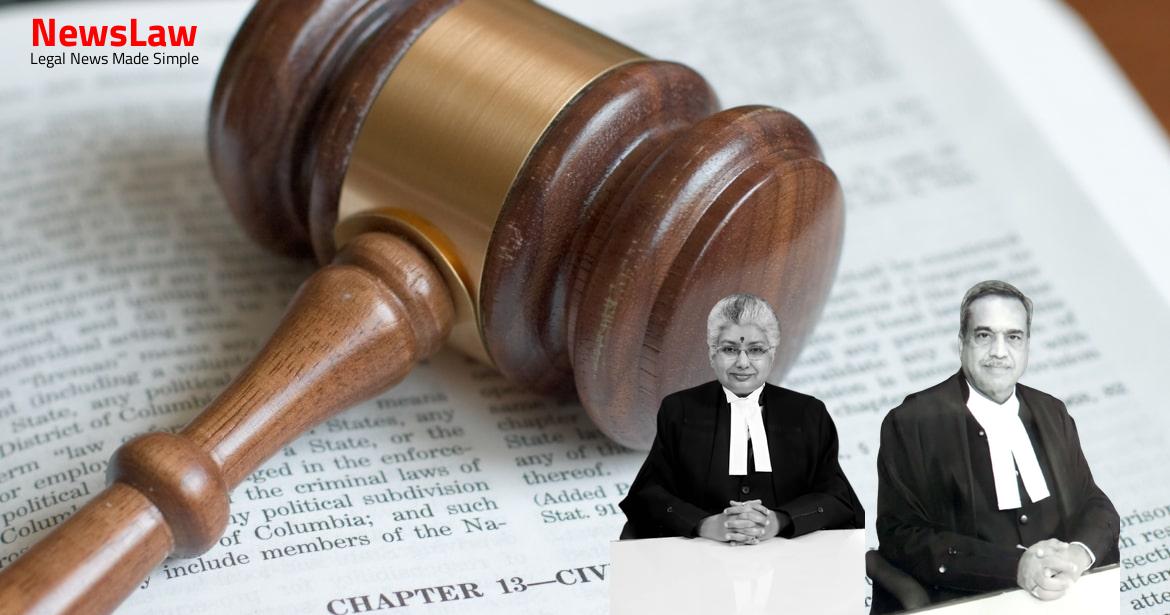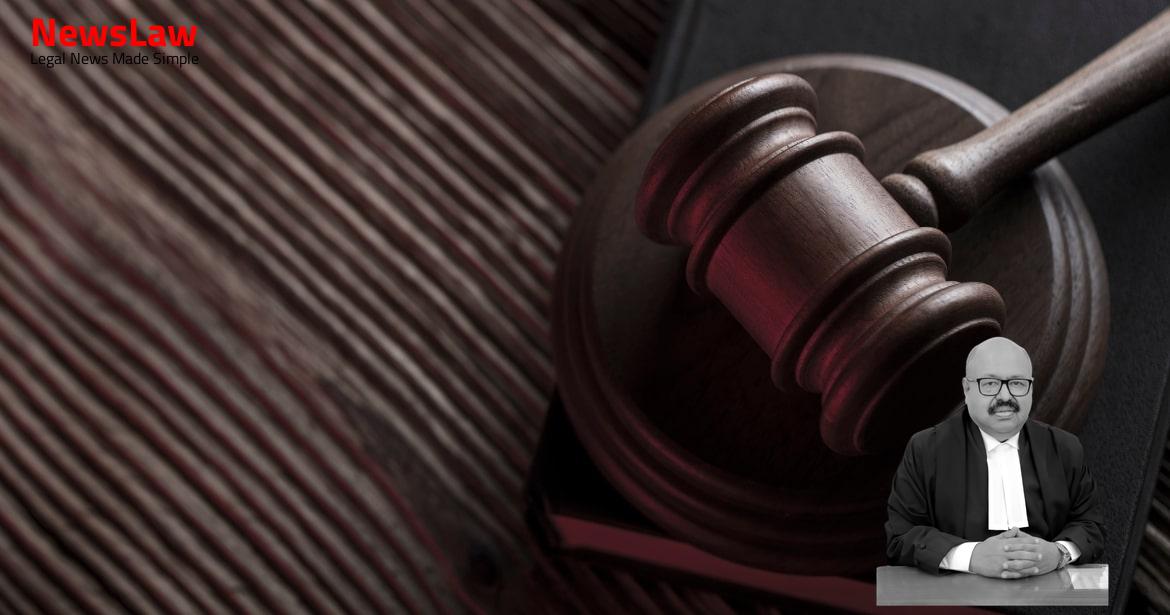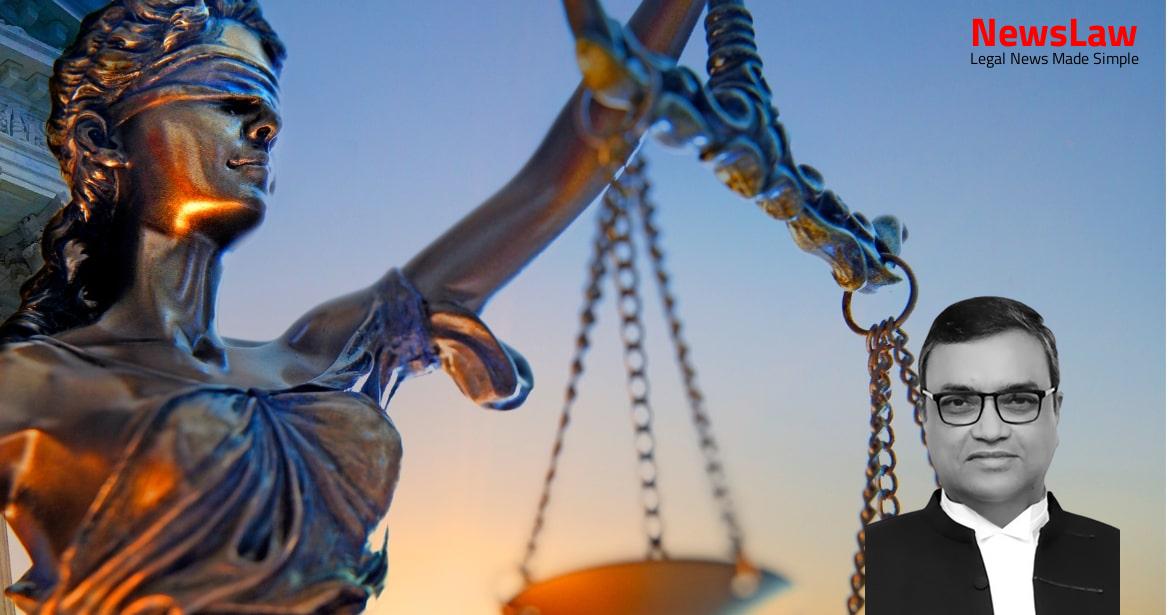Explore the intricacies of a recent court judgment focusing on the jurisdictional analysis in a contentious land dispute case. The court’s thorough examination of jurisdictional matters sheds light on the complexities of legal proceedings and highlights the importance of adhering to statutory provisions. Follow along to gain insights into the legal intricacies of the case and understand the implications of jurisdictional challenges in disputes involving land ownership and transfers.
Facts
- The High Court reversed the judgment and decree of the Trial Court.
- Possession of the land was handed over to MDA on 31 July 1992.
- The Competent Authority’s possession letter of 31 July 1992 was considered to be a ‘paper possession’ and not ‘actual physical possession’.
- An appeal allowed on 6 January 1993 resulted in remanding the case to the Competent Authority.
- The Competent Authority did not take ‘actual possession’ as required by law.
- Permission for transfer of the land was not granted due to a pending suit.
- The auction of the land was deemed illegal and void.
- MDA was declared the lawful owner of the land by the Trial Court.
- Ritesh Tiwari & Ors. v. State of U.P & Ors. was cited to establish the invalidity of the transfer of land by Zahid Hussain.
- Possession of the land by MDA was a crucial point in the case.
- The High Court allowed the appeal by the first respondent and reversed the judgment of the Trial Court regarding the nullity of the auction conducted by Moradabad Development Authority for the land in dispute.
- The High Court noted that the suit was barred by Order II Rule 2 of the CPC, but the appellant did not challenge this finding by filing a memorandum of cross-objection.
- The suit was dismissed on grounds of limitation by the High Court.
- The Division Bench of the High Court granted the respondent a decree against the appellant based on the District Judge’s decision that allowed the appeal against the order of the Competent Authority.
Also Read: Electoral Malpractices in Mayor Election
Arguments
- The first respondent’s acquisition of lands from Zahid Hussain in 1993 is alleged to violate ULCRA provisions.
- The sale deed in favor of the first respondent is deemed void, undermining the basis of their lawsuit.
- Possession was claimed to have been transferred to MDA on 31 July 1992, contradicting the appellant’s stance.
- The original claim in the suit was expanded through an amendment to include a larger land area.
- An acquisition under the Land Acquisition Act 1894 occurred in 1986 for 200 sq. mt. of land in Gata No 200.
Also Read: Balancing Power and Transparency: Electoral Bonds Struck Down, Disclosure Mandated
Analysis
- The analysis delves into the rival submissions regarding the jurisdiction of the civil court in the context of the suit instituted by the first respondent.
- The Trial Court’s dismissal of the suit was considered correct due to various reasons including the timing of the purported transfer of the suit land by Zahid Hussain.
- It is highlighted that the first respondent’s challenge to the auction conducted by MDA is not the substantive cause of action in the suit, which actually arises from land ceiling proceedings under ULCRA.
- The ULCRA impliedly excludes the jurisdiction of the civil court on matters emerging from the ceiling proceedings, rendering the suit’s foundation legally untenable.
- Despite the Trial Court decree in favor of the appellant, the issue of jurisdiction was decided against the appellant, further solidifying the dismissal of the suit.
- The analysis reveals that the appellant raised objections to the Trial Court’s jurisdiction during the proceedings, emphasizing that an injunction and declaratory relief were not permissible under ULCRA.
- The possibility of new grounds being raised in a special leave petition under Article 136 is discussed, presenting that the court must adhere to the pleadings before the challenged court, hence limiting the scope of raised arguments.
- The analysis concludes that even if Zahid Hussain held the title and possession of the land at the time of transfer, the transfer to the first respondent was null and void due to non-compliance with ULCRA provisions.
- The judgment discusses the significance of filing a memorandum of cross-objection under Order XLI Rule 22 in certain circumstances.
- It highlights the changes brought by the 1976 amendment to the scope of filing cross-objections.
- The amendment introduced different forms of raising cross-objections against the findings and decrees of the lower court.
- The court refers to tests laid down in the Constitutional Bench decision of Dhulabhai v. State of M.P.
- Various cases such as S. Nazeer Ahmed v. State Bank of Mysore, David Montosh, and Vasant Kumar Radhakisan Vora are cited to emphasize jurisdictional questions and the raising of objections under Order XLI Rule 22.
- The importance of raising objections on ‘findings’ that are against a party is discussed in light of different court decisions.
- The amendment in 1976 allowed cross-objections against ‘findings’ of the lower court, expanding the scope for filing objections.
- The Supreme Court has plenary jurisdiction under Article 136 of the Constitution and the power to do complete justice under Article 142.
- New grounds can be entertained if they involve a question of law that does not require additional evidence and concern the jurisdiction of the court, especially if it goes to the root of the matter.
- Even if the appellant did not raise the issue of jurisdiction before the High Court, they are not precluded from raising it before the Supreme Court.
Also Read: Recall of Resolution Plan Approval: Legal Analysis
Decision
- The first respondent is ordered to pay costs to the appellant amounting to Rupees fifty thousand.
- The appeal is allowed and the High Court judgment dated 22 February 2018 is set aside.
- The suit brought by the first respondent is dismissed.
Case Title: SAURAV JAIN Vs. M/S A.B.P. DESIGN (2021 INSC 384)
Case Number: C.A. No.-004448-004448 / 2021



